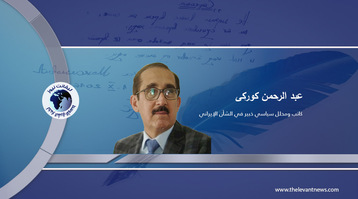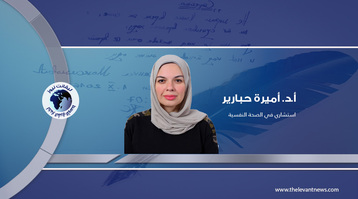-
Britain’s “embarrassing” failure in welcoming Ukrainian refugees

Britain has been quite effective in responding to Vladimir Putin’s invasion of Ukraine, especially in terms of supporting Volodomyr Zelensky’s government and armed forces in resisting Russia. Prime Minister Boris Johnson has sounded resolutely Churchillian in his rhetoric.
Last Saturday Johnson became the first G7 leader to visit Zelensky in Kyiv to supply Ukraine with 120 armoured vehicles and new anti-ship missile systems – in addition to the £100 million Britain was providing to help defend the country. The trip was widely described as a “surprise” and seen as a UK gesture of unwavering solidarity.
“It is because of President Zelensky’s resolute leadership and the invincible heroism and courage of the Ukrainian people that Putin’s monstrous aims are being thwarted,” Downing Street quoted him as saying.
But Johnson’s Conservative government has woefully under-performed in welcoming Ukrainian people seeking refuge in the UK. Official Home Office figures have shown that 12,000 Ukrainians have reached Britain under two visa schemes since the war began on February 24. The UN says that by April 6, more than 4.3 million people have left Ukraine.
The UK has been heavily criticised, both at home and abroad, for not allowing as many Ukrainian refugees to enter as some other European states, especially neighbouring Poland, which has accepted over 2.5 million. Romania has taken more than 650,000. Germany has welcomed more than 300,000 and France has accepted 30,000.
“Of course we’re going to take refugees,” promised Johnson shortly after Putin’s ”special military operation” began. “The UK is way out in front in our willingness to help.” But by mid-March, Emmanuel Macron, the French president, accused the British government of failing to live up to its “grand statements.”
European Union countries quickly agreed that all Ukrainians could enter without visas and could live, work and receive welfare for at least a year. By contrast, the country that Johnson calls “Global Britain”, and left the EU in December 2020, came up with the least generous offer, described as a “paperwork-first policy” or simply “chaotic” in practice.
Last week two government ministers generated media coverage by apologising for this “embarrassing” failure. First to do so was Lord Richard Harrington, who was recently appointed refugees minister, saying the government was "not geared up" for the volume of Ukrainians seeking refuge in the UK.
Next up was Priti Patel, the Home Secretary and a fervent Boris supporter. She apologised “with frustration” over the time it was taking for Ukrainians to arrive in the UK. But she denied that visa requirements and checks were slowing the process and causing delays.
Patel, a keen Brexiteer, said: “We are an independent third country and we want to give people the status and security of coming to our country along with the warm welcome. Yes, we want to welcome people, we are welcoming people – over 40,000 visas being granted, over 10,000 people over a space of five weeks coming to the UK.”
Both apologies came after the first government-backed matching scheme was launched to link UK sponsors with Ukrainian refugees, amid warnings that schemes helping people reach safety must not become victims of sex traffickers.
Around 200,000 people in the UK have registered to host Ukrainian refugees, but complex application forms, difficulty finding appropriate matches and lengthy delays are all slowing down the process. The “Homes for Ukraine” scheme lets Britons host refugees who are known to them, but who do not have family ties here. It was launched on 14 March. More than 100,000 people and organisations signed up on the first day.
Under the scheme, people are asked to offer Ukrainians a rent-free space in their home or a separate residence for at least six months. They will not be expected to provide food and living expenses but can choose to do so. Those offering to host a refugee will be vetted by the government and Ukrainian applicants will undergo security checks.
Each household housing a refugee will be offered £350 a month, tax-free, for up to 12 months. Local authorities will also receive £10,500 in extra funding per refugee for support services, with more for children of school age.
On 26 February, Home Office minister Kevin Foster was widely criticised after highlighting the government's Seasonal Worker visa, which allows people to apply to come to the UK to pick fruit and vegetables. Unlike Syrian or Afghan refugees, most of the Ukrainians are single women or mothers with children. Men under 60 have been conscripted.
“It is not news that Johnson lets people down,” wrote a journalist who offered to host Ukrainians in his own home. “It is one of the constants of his career. Everyone is betrayed in the end. But, with help from an incompetent cabinet, he has outdone himself with the offer to make Britain a place of sanctuary for Ukrainian refugees. Having run out of his own pledges to break, he has stooped to purloining promises from the public and breaking those too.”
In these uncertain times, democratic governments , including Boris Johnson’s, need to be seen to be acting with competence across the board – and on all fronts.

BY: IAN BLACK
You May Also Like
Popular Posts
Caricature
Syrians' concerns now
- December 10, 2024
Syrians' concerns now #Syria
#Bashar_al-Assad
#Liberation_of_Syria
#Syrians
#Future_of_Syria
#Levant_News

opinion
Report
ads
Newsletter
Subscribe to our mailing list to get the new updates!



















